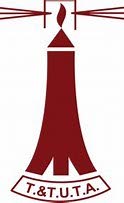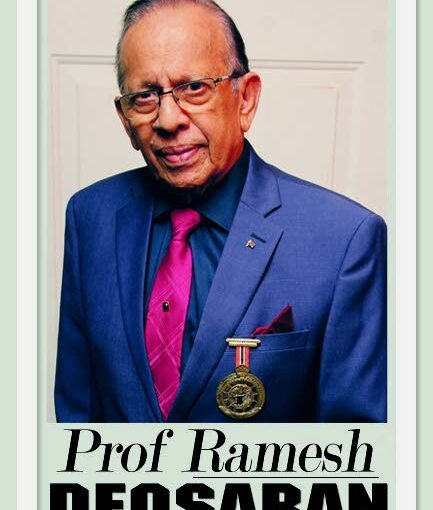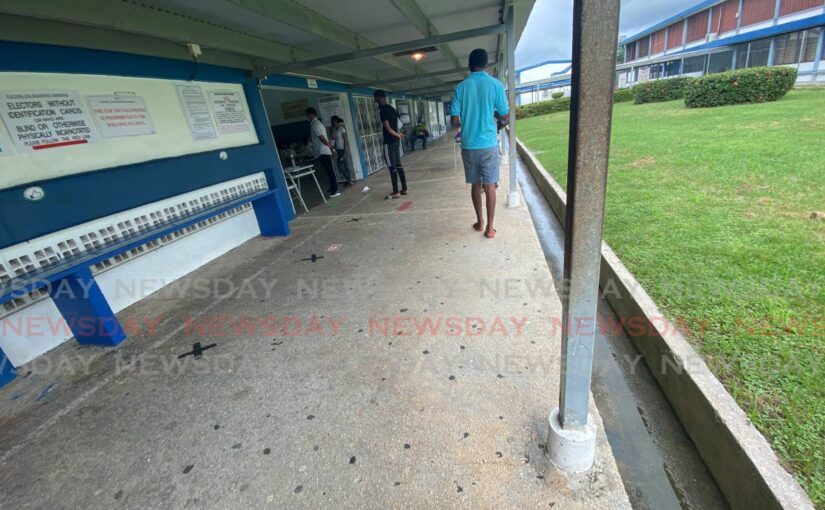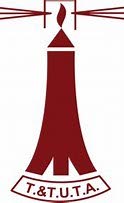This column seeks to bring light to the troubling problem of school violence, delinquency and licks (corporal punishment). Two issues which need to...
Vous n'êtes pas connecté
- English
- Français
- عربي
- Español
- Deutsch
- Português
- русский язык
- Català
- Italiano
- Nederlands, Vlaams
- Norsk
- فارسی
- বাংলা
- اردو
- Azərbaycan dili
- Bahasa Indonesia
- Հայերեն
- Ελληνικά
- Bosanski jezik
- українська мова
- Íslenska
- Türkmen, Түркмен
- Türkçe
- Shqip
- Eesti keel
- magyar
- Қазақ тілі
- Kalaallisut ; kalaallit oqaasii
- Lietuvių kalba
- Latviešu valoda
- македонски јазик
- Монгол
- Bahasa Melayu ; بهاس ملايو
- ဗမာစာ
- Slovenščina
- тоҷикӣ ; toğikī ; تاجیکی
- ไทย
- O'zbek ; Ўзбек ; أۇزبېك
- Tiếng Việt
- ភាសាខ្មែរ
- རྫོང་ཁ
- Soomaaliga ; af Soomaali
Rubriques :
 Maroc - NEWSDAY.CO.TT - A la Une - 17/Sep 07:38
Maroc - NEWSDAY.CO.TT - A la Une - 17/Sep 07:38
Rebuilding education foundation
Part 1 EDUCATION has been referred to by many as the backbone of every developing nation. Education is, therefore, the foundation of every nation and should be treated with greatest importance and priority. Its capacity to empower its citizens and enhance their range of choices is key to economic sustainability. Education develops the most important resource of a country – its human capital. The education sector, without doubt, requires effective leadership that meticulously transforms the sector as the global environment evolves. Innovations are expected as we adapt to and respond to a rapidly changing technology-driven global environment. Careful and well thought-out strategies and processes must be considered with a direct correlation to the vision of economic sustainability and global competitiveness. Unfortunately, in Trinidad and Tobago our education sector has been short-changed through politically motivated initiatives that weren’t carefully built out for sustainable and long-term growth. Several of those initiatives are quite laudable. However, the evolutionary process was never based on a careful and well thought-out overarching plan of comprehensive human development. Sporadic and piecemeal additions made to a system that was never designed to empower all citizens became the order of the day ever since independence. Against a history of subservience and exploitation, political and self-serving interests dictated all educational reform. These were always conceived in five-year capsules, oblivious to the true nature and purpose of education. Margaret J Wheatley once said, “Without reflection, we go blindly on our way, creating more unintended consequences, and failing to achieve anything useful.” It is indeed important to reflect on the changes made over the decades that have resulted in an education system that is failing to meet the needs of the majority of our citizens, maintaining its elitist inequitable character, ensuring that on an annual basis the majority of our citizens are certified as failures. Skill-based education Prior to the advent of Universal Secondary Education in 2000, only students who passed a high-stakes exam (Common Entrance) were given the opportunity to attend secondary school. The students who were unsuccessful had the option of enrolling in "school evening programmes" or trade schools. Some also went on to pursue aspects of technical vocational education at workshops within their community through apprenticeships, honing their skills through a combination of experience and formal training. There were growing concerns that the students who were unsuccessful at the high-stakes exam at primary school are still deserving of the basics of education offered at secondary school, with foundation concepts and learning that impacts directly on the world of work and life as a productive citizen. Themes identified by UNESCO focused on quality education for all and TT adopted the model in 2000. In principle, one can agree that everyone should be exposed to quality education. Unfortunately, the centralised "one cap fits all" model adopted took the life out of trade schools, whereby the intention was to strengthen the offerings of the technical and vocational education and training (TVET) offerings at the secondary schools. TVET has eventually become a neglected programme at our secondary schools, unable to fill the void trade schools left. In essence, a key aspect of vocational education, on-site training, was taken out to be replaced by an academic-based core curriculum model which is now not serving its purpose efficiently. This has resulted in a drastic shortage of skilled workers to meet the needs of the economy with its concomitant negative economic implications. There are now calls for the reintegration of trade schools in the formal education sector, understanding the critical role they once played in the creation of a skilled workforce. Remedial teachers/ instructional coaches The narrow scope and focus of the education system, which unsurprisingly does not adequately cater for all, has resulted in large numbers of students being "left behind." Remedial teachers were utilised as an intervention to assist the students who are further behind to grasp key concepts and "catch up." The system of remedial teachers has since been phased out and, in Tobago, replaced with "instructional coaches." The assumption was that teachers, if given support and means to better cater for their students, there would be no need for remedial work. This has definitely been a false assumption as the instructional coaches have also not met the needs for the smooth progression of all students and now there are no remedial teachers to provide the scaffolding support to the students who desperately need it. The learning gaps persist with indiscipline implications for schools. The post Rebuilding education foundation appeared first on Trinidad and Tobago Newsday.
Articles similaires
More trouble at Cedros Secondary School
AFTER a video surfaced on WhatsApp showing two parents fighting outside Cedros Secondary School, a source close to the school tells Newsday there are...
Cancer of School Indiscipline
“The undisciplined are slaves to moods, appetites and passions” – Stephen Covey ALL SOCIETAL institutions, both formal and informal, are...
School violence – a TTUTA perspective
THE ISSUE of school violence has been with us for a long time. Even as we try to grapple once again with this issue, TTUTA as its contribution to...
Nestlé Nigeria Reaffirms Commitment to the Future of Young Nigerians Through Community Scholarship Program
Nestlé Nigeria is proud to reaffirm its commitment to empowering the next generation of leaders by opening entries for its annual scholarship...
Education Under Siege: Examining Taliban’s Restrictions On Female Learning And Broader Societal Effects In Afghanistan – Analysis
The return of the Taliban in August 2021 marked a critical turning point for Afghanistan, especially in the realm of women’s rights and education....
White poppy orders surge in schools and universities ahead of Remembrance Day
More white poppies are being ordered for schools, universities, and other education settings in the run up to Remembrance Day this year, following...
Tasmanian colleges get a boost with VET futures fund
Asignificant investment in vocational education is unfolding in Tasmania as the government rolls out the first phase of its $30 million Vocational...
Late Gov. Ajasin, an Epitome of Excellence, Selflessness, says Gov. Aiyedatiwa, Arogbofa
The Governor of Ondo State and Visitor to Adekunle Ajasin University, Akungba Akoko (AAUA), Hon. Lucky Aiyedatiwa, has paid tribute to the late Chief...
NUJ to Ondo Govt: Increase monthly allocation of Owena Press Limited
COMMUNIQUÉ ISSUED AT THE END OF THE MONTHLY CONGRESS OF THE NIGERIA UNION OF JOURNALISTS, ONDO STATE COUNCIL, HELD ON THURSDAY, 31ST OF OCTOBER,...
Les derniers communiqués
-
Aucun élément





.jpg)

